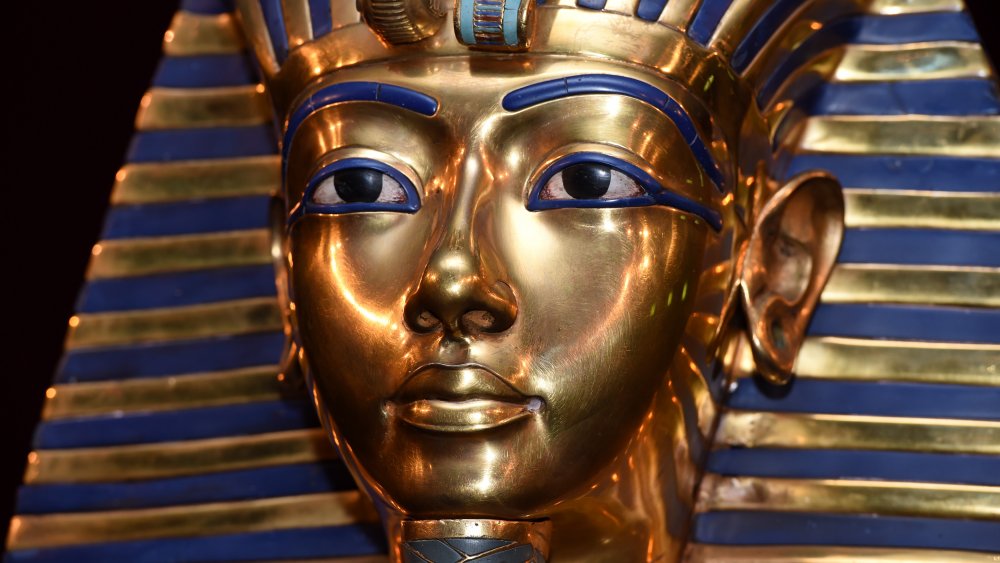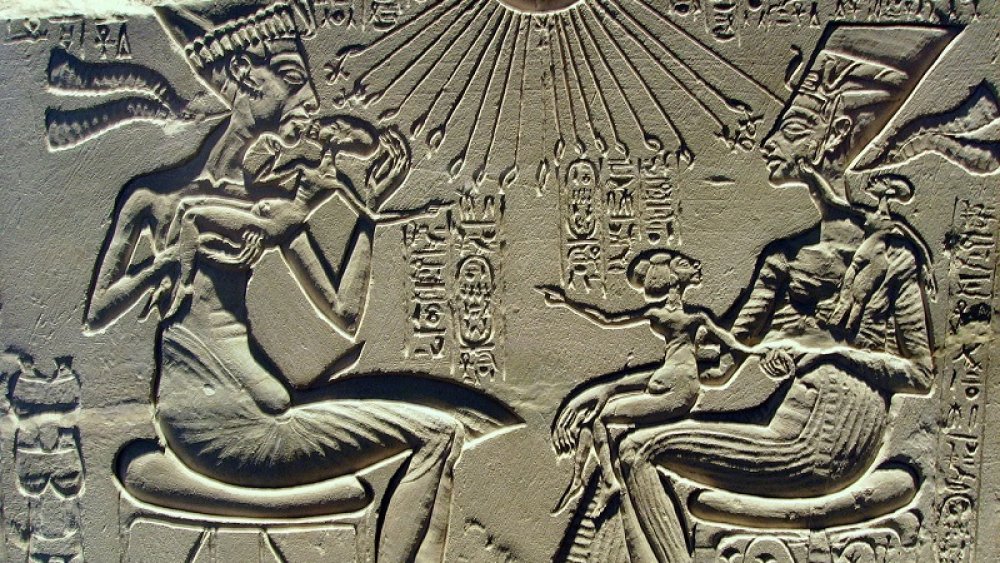How Old Was King Tut When He Took The Throne?
Since his tomb was discovered in 1922, the 18th-dynasty pharaoh Tutankhamun, or King Tut as he's commonly known in our era, has become synonymous with both the grandeur of ancient Egypt and our modern fear of ancient curses. When looking at the actual historic record, however, this reputation is more than a bit outsized. Most of King Tut's fame can be attributed not to his accomplishments in life, but to the fact that his tomb was intact when it was found, unlike many of his colleagues whose final resting places had been sacked by grave robbers.
The details of Tutankhamun's ascension to the throne are sketchy (more on that in a minute), but Egyptologists believe he was just eight or nine years old when he picked up the royal crook and flail. Due to the strict monarchical structure of Egypt's government, child pharaohs weren't entirely uncommon, and like the others, Tutankhamun had a political adviser guiding his young hand in state business for a portion of his reign. But how exactly did that reign go? Well, it wasn't super memorable, that's for sure.
How did King Tut become pharaoh?
The Ancient Egyptians were known for their historic record keeping. However, there are some holes in the timeline, and Tutankhamun came at the end of one of them. His father, Akhenaten, is one of the most notorious and controversial figures in all of Egyptian history. During his reign, Akhenaten oversaw an upheaval of Egyptian society and culture. He moved the kingdom's capital from Thebes to the new city of Akhetaten (today known as Amarna), and he also constructed monuments in an artistic style unique to everything else that had come before. And on top of all that, he began worshiping different gods.
This era is now referred to by Egyptologists as the Amarna period. Akhenaten's reign was followed by two pharaohs of whom we know little about (although many historians believe one was Akhenaten's influential queen, Nefertiti), and then his son, Tutankhamun. During Tutankhamun's reign, many of the changes made by Akhenaten were undone, and eventually, the evidence of them was destroyed and suppressed. Because of this, details of the Amarna period are hazy.
Other than bringing Egyptian culture back from its strange detour, Tutankhamun's reign was short and mostly unremarkable, which is ironic considering he's currently the most famous ancient Egyptian other than Cleopatra. All evidence points to him being a sickly child (possibly owing to the fact that his mother was likely his father's sister) who died when he was 19 of a combination of genetic ailments, a badly broken leg, and severe malaria. Still, even though he barely accomplished anything while alive, he would live on for eternity thanks to his tomb. And hey, isn't that what every pharaoh dreamed of?

